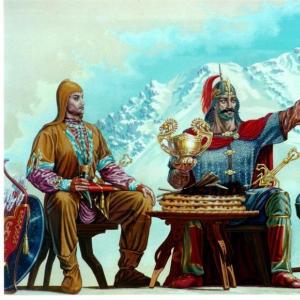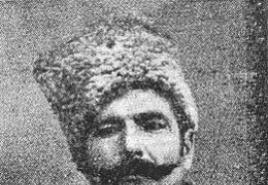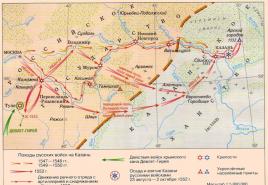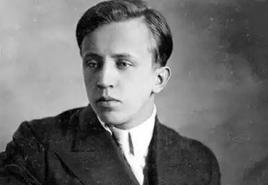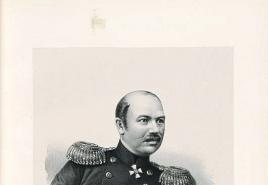The Paris treatise was signed in. Paris Peace Treaty signed
England, Sardinia, Prussia, Austria and France, on the one hand, and Russia, on the other, took part in the work.
During the years 1856-1871. The Russian Empire fought to lift the restrictions under this agreement. The government did not like the fact that the Black Sea border remained open to sudden deposition. After long negotiations, the incomplete cancellation of the articles of the Paris Peace Treaty, namely the lifting of the ban on the maintenance of the fleet in the Black Sea, took place thanks to the London Convention in 1871.
Crimean War
After the termination of all diplomatic and economic relations between Russia and Turkey in 1853, the first occupies the Danube principalities. The Turkish government did not tolerate such an attitude towards itself and on October 4 of the same year declares war. The Russian army was able to push back the Turkish troops from the banks of the Danube, as well as repel their offensive in the Transcaucasus. She perfectly coped with the enemy at sea, who was heading to the very center of events. After such actions, Great Britain and France enter the war. They successfully pass through the Black Sea and surround the enemy army. On March 27, England declares war on Russia, and France does the same the next day. A month later, the Anglo-French army is trying to land near Odessa, having previously fired at the settlement with 350 guns. On September 8, 1854, the same troops defeated Russia and stopped in the Crimea. The siege of Sevastopol begins on October 17. Places of deployment of troops numbered about 30 thousand people; the settlement suffered from 5 large-scale bombings. After the conquest of the southern part of Sevastopol by France, the Russian army retreats. Throughout the entire siege (349 days), the empire tries in every possible way to distract the enemy, but the attempts are unsuccessful. Sevastopol is under the control of the Anglo-French troops.
The Paris Peace Treaty of 1856, signed on March 18, ended the hostilities. It provided for the liberation of the Black Sea (becoming neutral), bringing the Russian fleet to the minimum level. The same obligations were imposed on Turkey. In addition, the Empire remains without the Danube estuary, part of Bessarabia, power in Serbia, Wallachia and Moldavia.

Paris Peace Treaty
Due to the tragic resolution of the Crimean conflict for Russia, it becomes infringed on its rights and interests. Surprisingly, the territorial boundaries of the Empire were practically not affected. She gave away some of the islands, principalities and the Danube estuary in exchange for cities such as Sevastopol, Kinburn and others. The only downside was that the territories obtained as a result of the peace treaty were besieged by the allied forces. The most severe blow to Russia was that the Paris Peace Treaty of 1856 limited its possessions on the Black Sea, prohibiting the possession of a fleet, arsenals, and fortresses.
The agreement influenced the social European situation, the foundations of which were laid in the Vienna Treatises. Paris became the leader of all Europe, and the former Petersburg was relegated to second place.

Terms of the Paris Peace Treaty
The Paris Treaty included 34 obligatory and 1 temporary article. The main conditions are the following:
- From now on, peace and friendliness reign between the countries that conclude an agreement.
- The territories conquered during the conflict will be liberated and transferred to the original owners.
- Russia undertakes to return Kars and other parts of the Ottoman possessions that are now occupied by troops.
- France and Great Britain undertake to return the captured ports and cities to the Empire: Sevastopol, Evpatoria and others occupied by the Anglo-French army.
- Russia, France, Great Britain and Sardinia must offer their forgiveness to those who in any way were guilty of the outbreak of hostilities.
- All parties undertake to return the prisoners of war immediately.
- The Paris Peace Treaty of 1856 obliges the countries that signed the document to help the allies in the event of an enemy attack; carefully observe the conditions without violating them.
- If a conflict or disagreement arises between any of the countries that have concluded the treaty, others do not use force to resolve it, making it possible to settle everything peacefully.
- None of the rulers interferes in the foreign and domestic policy of the neighboring state.
- The entrance to the Bosphorus and the Dardanelles remains closed.
- The Black Sea becomes neutral; it is prohibited to have a fleet on it.
- Trade is allowed on the shores of the Black Sea, which is subject only to the relevant department.
- It is forbidden to have an arsenal on the Black Sea.
- The number and strength of ships are determined by this agreement and cannot be exceeded.
- Danube shipping duties are canceled.
- An approved team will oversee the cleanup of river banks, etc.
- The created commission should subsequently draw up rules for shipping and transportation of goods, remove obstacles to convenient patrolling of the sea territory.
- The necessary authority will be transferred to the Coastal Commission so that the work it undertakes to carry out is completed after 2 years.
- Each country is allowed to have 2 light vessels on the banks of the Danube.
- The border of Russia near Bessarabia is shifted for convenient navigation along the Danube.
- Those territories liberated by the Russian Empire will be annexed to Moldova.
- No one has the right to interfere in the internal politics of the Valakh and Moldavian principality.
- The Ottoman Empire undertakes not to interfere in the politics of the allied countries, leaving them the right to independent rule; leaves complete freedom to choose religion, trade, shipping and general law.

Cancellation of the Paris Peace Treaty
After accepting the Russian-English world, Russia tried to soften the restrictions, thereby regaining the Black Sea and the opportunity to have a fleet. That is why diplomatic relations flourish at this time. During the years 1856-1871. The empire established favorable relations with France: she planned to receive help from Russia in the Austro-French conflict, and the latter counted on the influence of France in the eastern question.
The Paris conference, which lasted until 1863, became decisive in Russian-French relations. The countries became noticeably closer and jointly resolved some issues. March 1859 was important for France, because a secret treaty was concluded, according to which, in the event of a war with Austria, the Empire promises to remain neutral. The deterioration of relations was observed during the Polish uprising. As a result of these actions, Russia is improving relations with Prussia.
After strengthening in 1872, Berlin hosted 3 emperors. A convention begins, during which Austria also joins. According to the Berlin Treaty adopted at that time, the cancellation of the articles of the Paris Peace Treaty becomes a matter of time for Russia. She regains her fleet in the Black Sea and lost territories.
A century and a half ago, a document appeared in the European political system that for a long time influenced the foreign and domestic policies of the leading powers. In the capital of France, representatives from seven participating countries signed the Paris Peace Treaty. He put an end to the Crimean War, which by that time had dragged on and depleted the reserves of all conflicting parties.
The document turned out to be humiliating for Russia. However, he gave impetus for many transformations, and also pushed Russian diplomats to conduct a diplomatic game.
Briefly about the Crimean War
At first, military events did not foreshadow any particular danger for Russia. The Ottoman Empire was weakened by internal problems and was hardly able to provide a worthy resistance to the enemy alone. Turkey at this time was called "a sick person". This explains why in 1853 the Russian army was able to boast of a streak of victories. The battle of Sinop turned out to be especially successful, as a result of which the Turkish squadron was destroyed.
Turkey was important to European countries. They decided to support her so that the last barrier that prevented Russia's penetration into the Mediterranean Sea was not destroyed. Therefore, France and England entered the war as allies of Turkey.

Austria was drawn into this rather complicated relationship. The state sought to strengthen its influence in the Balkans, while preventing Russian troops there.
The allies attacked Russian military forces on all fronts:
- on the White Sea, British ships fired at the Solovetsky monastery;
- the Anglo-French landing attacked Petropavlovsk-Kamchatsky;
- allied attack on Crimea.
The most important was the southern front. So, the most fierce battles took place for Sevastopol. His defense lasted eleven months. After the battle on Malakhov Kurgan, the allies won. By September 1855, the Anglo-French troops entered the destroyed Sevastopol. However, the capture of the main Black Sea port did not bring an absolute victory to the Allied forces. At the same time, Russia took the city of Kars, which was a strategic point in Turkey. This saved Russia from possible defeat and the conclusion of an unprofitable peace treaty.

Beginning of peace talks
A change of rulers took place in Russia. After the death of Nicholas, his son took the throne. Alexander was distinguished by his innovative views. The death of the monarch was the reason for the beginning of communication between the rulers of France and Russia.
The Paris Peace (1856) became possible thanks to the negotiations that began between Napoleon III and Alexander II. At the end of 1855, the French ruler conveyed to Alexander the Second that the war did not start at the will of France, but because of "some insurmountable circumstances."
Russian-French relations did not suit Austria. The Empire did not take an official part in the war, however, it did not want a Franco-Russian compromise. Austria feared she would not benefit from such an agreement. The Paris peace was in jeopardy due to the Austrian ultimatum.
Ultimatum for Russia
The Austrian side sent demands to the representatives of Russia, according to which it would agree to the Paris Peace. If Russia refused these conditions, it would be dragged into another war.
The ultimatum consisted of the following points:
- Russia was obliged to stop helping the Danube principalities by agreeing to a new border with Bessarabia;
- Russia was to lose access to the Danube;
- The Black Sea was to become neutral;
- Russia had to stop patronizing the Orthodox from Turkey in favor of the allied great powers.
The Emperor of Russia and his entourage discussed this ultimatum for a long time. They couldn't let Austria go to war. It would tear and ruin the country. The Minister of Foreign Affairs, on behalf of Alexander II, informed the Austrian side that they agreed to the ultimatum. Further negotiations were moved to Paris.

Countries participating in the congress
Before the signing of the treaty, a congress was held in Paris. It began its work on 02.25.1856. Which countries were represented at it?
Participants of the Paris Peace:
- France - Count Alexander Walewski (cousin of Napoleon III) and Francois de Burken (worked as the French ambassador to Turkey) spoke from the country;
- England - Henry Cowley and Lord George Clarendon;
- Russia - Count Alexei Orlov, Philip Brunnov (he was once the ambassador to London);
- Austria - Minister for Foreign Affairs Karl Buol, Gübner;
- Turkey - Ali Pasha (Grand Vizier), Cemil Bey (Ambassador to Paris);
- Sardinia - Benso di Cavour, Villamarina;
- Prussia - Otto Manteuffel, Harzfeldt.
The Paris Peace Treaty was to be signed after a series of negotiations. Russia's task was to ensure that the points of the ultimatum were not accepted.

Congress progress
At the beginning of the Congress, England and Austria found themselves in opposition to France. Napoleon III played a double game, he strove to maintain friendly relations with the allies and with Russia. France did not want the complete humiliation of the Russian state. Due to the lack of unity between the allies, Russia managed to avoid additional points to the ultimatum.
The Paris Peace (1856) could be supplemented with the following points:
- the Polish question;
- territorial disputes in the Caucasus;
- declaration of neutrality in the Sea of \u200b\u200bAzov.
The final version was signed on 05/30/1856.

Conditions of the Paris Peace (briefly)
The Paris Treaty consisted of thirty-five articles, one of which was temporary, and the rest were mandatory.
Examples of some articles:
- between the states that signed the treaty, from that time there was peace;
- Russia undertakes to return the Ottoman possessions that it seized during the war, including Kars;
- France and England are obliged to return to Russia the captured cities and ports;
- all parties must release prisoners of war without delay;
- from now on it is forbidden to have a fleet, an arsenal on the Black Sea;
- in the event of a conflict between countries that have signed the treaty, other states should not use force in order to resolve it;
- rulers do not interfere in the domestic and foreign policy of another state;
- territories liberated by Russia will be annexed to Moldova;
- each country is allowed to have only two ships on the Danube;
- none of the states should interfere in the internal affairs of the Walachian principality and the Moldavian principality;
- The Ottoman Empire should not interfere in the affairs of the allied countries.
What did the conclusion of the Paris Peace Treaty mean for Russia?
Results of the agreement for Russia
The final version of the treaty dealt a severe blow to Russia. Its influence in the Middle East and the Balkans has been undermined. Particularly humiliating were the articles about the Black Sea and military navigation in the straits.
At the same time, territorial losses cannot be called significant. Russia gave Moldova the Danube delta and part of Bessarabia.
The results of the Paris Peace were not comforting for Russia. However, this agreement became the impetus for the reforms carried out by Alexander II.

Cancellation of the contract
In its further diplomacy, Russia tried to mitigate the consequences of the Paris Peace (1856). So after the Russian-English peace, the empire was able to return the Black Sea, as well as the opportunity to have a fleet on it. This became real thanks to the diplomatic skill of A. Gorchakov, who spoke on behalf of Russia at the London Conference (1871).
At the same time, Russia established profitable diplomatic relations with France. Alexander II hoped to receive support in the Eastern question, and France hoped for help in the Austro-French conflict. Relations between the two countries deteriorated due to the Polish uprising. Then Russia decides to improve relations with Prussia.
By 1872, the German Empire had greatly strengthened its position. A meeting of the three emperors took place in Berlin. The Berlin Treaty (1878) was adopted, which became the beginning of the abolition of the articles of the Paris Peace for Russia. Subsequently, she regained her lost territories and the opportunity to have a fleet in the Black Sea.
Dear editors!
I was surprised that on the websites of Sevastopol on March 30 they mentioned anything, but not a single word was mentioned about the conclusion of the Paris Peace Treaty of 1856,
played an important role in the fate of our city and the Black Sea Fleet! From Wikipedia
Treaty of Paris (Treaty of Paris) - an international treaty signed 18 (30) March 1856 at the Paris Congress, which opened on February 13 (25), 1856 in the capital of France. Russia, on the one hand, and the allies in the Crimean War, the Ottoman Empire, France, England, Austria, Sardinia, and also Prussia, took part in the work of the congress.
The unsuccessful course of the war for Russia led to the infringement of its rights and interests; territorial losses in the end turned out to be for her, however, minimal (initially England demanded, among other things, the concession of Bessarabia and the destruction of Nikolaev): Russia refused to strengthen the Aland Islands; agreed to freedom of navigation on the Danube; renounced the protectorate over Wallachia, Moldavia and Serbia and part of southern Bessarabia; ceded to Moldova its possessions at the mouths of the Danube and a part of southern Bessarabia, returned Kars, which had been occupied by Turkey (in exchange for Sevastopol and other Crimean cities).
The clause on the neutralization of the Black Sea was of fundamental importance for Russia. Neutralization meant the prohibition of all Black Sea powers to have navies, arsenals and fortresses on the Black Sea. Thus, the Russian Empire was placed in an unequal position with the Ottoman Empire, which fully retained its naval forces in the Marmara and Mediterranean seas.
The treatise was accompanied by a convention on the Bosporus and Dardanelles straits, which confirmed their closure to foreign warships in peacetime.
The Paris Peace Treaty of 1856 completely changed the international situation in Europe, destroying the European system based on the Vienna Treatises of 1815. “The supremacy in Europe passed from St. Petersburg to Paris,” K. Marx wrote about this time. The Treaty of Paris became the backbone of European diplomacy until the Franco-Prussian War of 1870-1871.
The multilateral treaty was signed in Paris on March 18 (30) at the final meeting of the Congress of Powers by representatives of Russia (A.F. Orlov, F.I.Brunnov), France (A. Valevsky, F. Burkene), Great Britain (G. Clarendon, G. Cowley), Turkey (Ali Pasha, Cemil Bey), Austria (K. Buol, I. Gübner), Prussia (O. Manteuffel, M. Garzfeldt), Sardinia (K. Cavour, S. Villamarina).
Interestingly, Count Alexei Fedorovich Orlov, who signed the treaty on behalf of Russia, is the brother of Mikhail Fedorovich Orlov, who played an important role in the surrender of Paris in 1815 to the allied forces that defeated the remnants of Napoleon's army. In those years, Russia, Austria, England were allies ... Paris, the treasury of French culture, was then saved for France and the world, with the most active participation of Russian soldiers.
What happened in Sevastopol, captured by the Allied troops in August 1855, can hardly be considered a merit of Western civilization ...
In 2011, France and the United Kingdom celebrated the 155th anniversary of the Paris Peace. Russia refused to participate in the celebrations ...
For Sevastopol residents, these events have retained their importance at the present time, because they are part of our history!
Best regards, Alexey Baskakov
Paris Peace or Sevastopol in March
Impregnated in winter quarters, buried in history
All the exploits of the Crimean War are a disgrace to the inglorious world.
Again, on the French boulevards, the Russians are joking sharply.
The intoxicated hussars are forgotten, only the word "bistro" remains.
Leaning at the table, sign, seizing the Paris Treaty,
Russian proverb: "bl ... in" in the hearts of the diplomat said ...
We left notches for a long memory of Europe:
Parisian "Boulevard Sevastopol" and the street of the river Alma.
Sevastopol lies in ruins, there are no Russian names here ...
The ruins are plundered indiscriminately by the descendants of the native tribes.
The dead see shadows - the invader disturbs their sleep
And the marble staircase steps into the foggy Albion are being taken.
And the bell that rang over the sea in a storm until dawn
Stolen from the Russians, humiliated, and thrown at Notre-Dame de Paris.
There are no more cheerful gypsies - no one is happy with the victors.
Italians are being brought to Russia to amuse the British soldiers.
There is no city, navy or glory, and there is no strength for revenge ...
A bloody trace in Russian history remained for a long time.
But why should we measure our losses ... Just a little, bastard, wait.
The era of Russian empires looms ahead again!
On March 30, 1856, at a congress in Paris, a peace treaty was signed between coalition on the one hand, which included many allied countries, and The Russian Empire... The hostilities, which lasted for about two and a half years, could not lead to the desired result for any of the conflicting parties.
In the event of continuing hostilities in which no one was interested, the coalition suffered heavy losses, fighting, in fact, away from their territories. The constant landing of troops was too monetary and energy-consuming enterprise. The Russian Empire did not want to lose its grip on european and Black Sea borders, and if the war continued, there was a possibility of losing influence in these territories.
Brief description of the Crimean War
The cause of the conflict is the desire of the Russian Emperor Nicholas I to separate from the weakened Ottoman Empire balkan territories, supporting the struggle of the Orthodox Slavs against the influence of the Muslim empire. The conflict began to develop Great Britain, in whose interests it was to oust Russia from Europe and knock it out of its dominant position in the Russian-Turkish war. The British were supported by France, represented by Napoleon III, who wanted to strengthen his power through "revenge" for 1815. (Russian capture of Paris). Several other countries joined the alliance and supported the military clash. And also the participants on the side of the coalition under the influence of Turkey were: the North Caucasian imamate, the Circassians and the principality of Abkhaz. The Kingdom of Prussia, the Swedish-Norwegian union and the Austrian Empire took neutrality. The indecision of the Russian commanders made it possible for the coalition troops to land on the territory of the Crimea, from where the Allied army began its advance to the East. The result of the war was the Treaty of Paris.
Member countries
Representatives of the following countries attended the Paris Congress from the coalition: Great Britain, France, the Ottoman Empire, Austria, Prussia and the Kingdom of Sardinia. The other side was represented by the Russian Empire without support or any allies.
Representatives
Each side was nominated two diplomats... The sessions of the Congress were chaired by the French Foreign Minister Alexander Valevsky.
1st representative | 2-representative |
|
|---|---|---|
the Russian Empire | Alexey Orlov | Phillip Brunnov |
Ottoman Empire | Aali Pasha | Cemil Bey |
Great Britain | George Villiers Clarendon | Henry Wellesley |
Alexander Valevsky | Francois-Adolphe de Burkene |
|
Kingdom of Sardinia | Benso di Cavour | S. de Villamarina |
Karl Buol | Johann Guebner |
|
Otto Theodor Manteuffel | M. Garzfeldt |

Main articles of the contract
In Article III of the Paris Highway, the Russian emperor pledged to return to Turkey kars town and other Ottoman possessions occupied by Russian troops.
In the XI article it was announced that from now on the Black Sea is neutral, which implies a ban on the navigation of warships on these waters (i.e., this article deprive Russia of the navy).
In XIII it is prohibited to keep in coastal zones military docks and arsenals, for the rapid deployment of the navy.
Article XXI says that the lands given by Russia are going to the Moldavian principality under Turkish rule.
Article XXII states that the Moldavian and Walachian principalities remain under Turkish rule.
In Article XXVIII, the Principality of Serbia also remains under Turkish rule.
Also into the politics of the principalities and their independence Turkey has no right to interfere, according to agreements with European countries.
Outcome of negotiations
The result was humiliating for Russia, since it was deprived of one of the most compelling advantages - the most powerful fleet in the Black Sea. The surrender of the conquered territories from the Russian Empire by the coalition was not as bad news as the deprivation of one of the trump cards in the war with the Ottoman Empire.
Articles contested by Russia
At the time of the signing of the Paris Peace Treaty, none of the articles could be challenged. But in 1871 on London Convention it turned out to cancel some of the articles by drawing up a new contract.
Thanks to the new treatise, both Russia and Turkey had the right to have any number of navies in the Black Sea. It was a real diplomatic victory for Russia.
Document lifetime
The Paris Peace Treaty existed in the form in which it was signed for 15 years. During this time, the Minister of Foreign Affairs of Russia A. M. Gorchakov, was able to revise the articles of the document and find convincing arguments for creating a new treatise.
Reflection in history
The Paris Peace Treaty changed the situation in Europe. Russia was placed in a rigid framework, which curtailed its capabilities in the war with the Ottoman Empire, even if it was weakened. A system built on the terms of the Russian Empire since 1815. (The Vienna Treaty) completely collapsed. Karl Marx, as a contemporary of what is happening, wrote the following, - “ The supremacy in Europe passed from St. Petersburg to Paris».
List of references:
- State publication of political literature - "Collection of treaties of Russia with other states 1856-1917" - edition Moscow - 1952, 450 p.
Napoleon III, whose army was the main force in the Crimea, decided to end the war with the fall of Sevastopol, but Palmerston objected to this, fearing an excessive strengthening of France. He insisted on continuing the war and implementing his plan for the partition of Russia, hoping in this way to raise the prestige of England in the eyes of European states and peoples of the East.
In early 1856, editorials from the influential American newspaper, The New York Daily Tribune, analyzed the military campaign of the past year. The author of these publications was F. Engels. In one of his articles, he wrote: "To concentrate all the forces of France, England and Sardinia against one point in the Crimea ... to fight for this point for eleven months and, as a result, to seize only half of it ... The system of warfare that the Western powers used in fight against Russia, has suffered a complete failure. This year's campaign, if such a campaign takes place, cannot be carried out according to the plan that has been adhered to until now. "
The company of 1855 turned out to be the last, and according to its results it was possible to sum up the results of the entire war. Tsarist Russia was defeated. It was a consequence of the general technical and economic backwardness of the autocratic serf country in comparison with the main capitalist powers of Western Europe and the result of the superiority of the military forces of the allied coalition. The capture of Sevastopol satisfied the vanity of Napoleon III. He could consider the main goals of the war achieved. The arms of France covered themselves with glory, revenge was taken for the defeat in 1812-1815, the position of the emperor within the country and the empire in Europe was strengthened. The power of Russia in the South was severely undermined: it lost the main Black Sea fortress, lost its fleet. the continuation of the struggle and the further weakening of Russia did not meet the interests of Napoleon, it would only play into the hands of England.
At the end of 1855, when hostilities had already ceased in the Crimea and the Caucasus, rumors began to circulate in political circles and high society salons of European capitals that some mysterious negotiations had begun between Paris and St. Petersburg. These rumors had a real foundation. The initiative for contacts came from the French side.
After the death of Nicholas I, Napoleon III wished the new Russian sovereign to know how much the French emperor condoled with the death of his "friend", to whom he had always had the most sincere respect. As for the war between France and Russia, it was the result of a dramatic set of circumstances, which he never ceases to regret. These feelings of Napoleon were transmitted through the Saxon envoy in Paris L. von Seebach, the son-in-law of Chancellor K.V. Nesselrode, to the capital of Russia.
But these contacts soon ended. The Austrians somehow found out about them. For Austria, this circumstance served as an impetus for more active actions. Emperor Franz Joseph and Prime Minister C.F.Bouol feared that the European conflict would end without their proper participation, and even through a Russian-French compromise. On the eve of the new year, 1856, the Austrian envoy V.L. Esterhazy came to Nesselrode and conveyed his government's ultimatum demand to Russia to accept the preliminary conditions for peace. The deadline for answering was January 6 (18). In case of refusal, Austria will be forced to sever relations with Russia.
The ultimatum consisted of five points. The first spoke about the abolition of Russian patronage of the Danube principalities and about the construction of a new border in Bessarabia, as a result of which Russia was deprived of access to the Danube. The second paragraph stipulated the conditions for the exercise of freedom of navigation on the Danube. The most important and painful point for Russia was the third point, according to which the Black Sea was declared neutral, the entrance to it was closed for military ships, and it was forbidden to have any naval arsenals on its shores. The fourth point was that the Russian patronage of the Orthodox population of the Ottoman Empire was replaced by a collective guarantee of the great powers "the rights and benefits of Christians. Without violating the independence and dignity of the Turkish government." Finally, the fifth point stated that the powers "grant themselves the right" to make new demands "for the common benefit of Europe ... beyond the four previous ones."
It should be noted that the conditions of the allies, including the unpleasant third point, did not come as a complete surprise to the tsarist government. A. M. Gorchakov regularly reported to St. Petersburg on the progress of the development of the requirements of the allies. He himself received this information through his secret informants. The leaders of Russian foreign policy, including the emperor, gradually moved from a position of absolute rejection of the idea of \u200b\u200bneutralizing the Black Sea to the idea of \u200b\u200bthe need to submit to this demand, which began to seem acceptable to them as a starting point in negotiations.
on December 1855 (January 1, 1856) and January 3 (15), 1856, two meetings were held in the Winter Palace, to which Alexander II invited prominent dignitaries of past years. On the agenda was the question of the Austrian ultimatum. Only one participant, D. N. Bludov, during the first meeting, spoke out against accepting the terms of the ultimatum, which, in his opinion, was incompatible with the dignity of Russia as a great power. the people, the orator believed, would react with indignation to such a shameful and dishonoring world. The speech bore the imprint of the views of certain patriotic minded circles of society, especially the Slavophiles and those close to them. and he himself was under the influence of his daughter, a Slavophilia court. At one time, Count Dmitry Nikolaevich had a significant weight at court. this educated man, not stranger to literary interests, held important government posts, and in the 30s was the Minister of the Interior. However, now he was old, and less took into account his opinion.
Emotional, but weak in argumentation, the speech of a well-known figure of Nikolayev's time did not find a response at the meeting. Bludov's speech was sharply criticized. All other participants in the meetings were unequivocal in favor of accepting the conditions presented. A. F. Orlov, M. S. Vorontsov, P. D. Kiselev, P. K. Meyendorff spoke in this spirit. They pointed to a very difficult economic situation in the country, disorganized finances, and a deterioration in the situation of the population. especially in the village.
As a result, it was decided to answer the Austrian proposal with consent. At first, however, an attempt was made to accept the ultimatum in a truncated form, that is, without those provisions that were missing in the previous four points - without changing the border in Bessarabia and the possibility of putting forward new demands. But the attempt was unsuccessful. KF Buhl told AM Gorchakov that the ultimatum must be accepted in its entirety. At the same time, he confirmed his intention to break off relations with Russia if a positive response is not received by the designated date.
So, on January 4 (16), 1856 K.V. Nesselrode informed V.L. Estergatsi that the Russian emperor was accepting five points. On January 20 (February 1), a protocol was signed in Vienna stating that the "Austrian communiqué" sets out the preliminary conditions for peace and obliges the governments of all parties concerned to send plenipotentiaries to Paris within three weeks to negotiate and conclude a final peace treaty. On 13 (25 February) in the capital of France, the sessions of the congress opened, at which Russia was represented by A. F. Orlov and F. I. Brunnov.
The Congress was attended by authorized delegates from France, Great Britain, Russia, Austria, the Ottoman Empire, Sardinia. After all the important issues had already been resolved, representatives of Prussia were also admitted. The Russian delegation was represented by prominent diplomats with extensive experience in conducting complex and intricate negotiations - A. Orlov and F. Brunnov. The French Minister of Foreign Affairs, the stepson of Napoleon I and the cousin of Napoleon III, Count F.A.Walewski represented at the meetings.
At this time, Napoleon III was playing a complex political game. His strategic plans included a revision of the "Vienna system of treaties of 1815". He intended to occupy a dominant position in the international arena, to establish French hegemony in Europe, to become a “super umpire” on the continent.
Russian diplomats, proceeding from the situation at the congress, worked out the only correct tactics in those conditions - to yield to the allies on the issues on which they act together, and to persist against the proposals of England if France does not support them.
Nesseselrode, in a letter to A. Orlov, wrote about the need to use the Anglo-French contradictions to soften the terms of the peace treaty with Russia: "The insufficient interest of France in promoting the goals of England pursued by her in Asia, as well as the prospect for the French emperor to become a firm foot on continent, will be in the hands of our delegates during the conference as a means of causing a coup in French policy necessary for England to abandon her warlike designs. "
The head of the Russian delegation managed to prevent the discussion at the congress of the Polish question, which is extremely unpleasant for Russia. The success of the Russian plenipotentiaries ended in the confrontation with Lord Clarendon, who was unable to implement either the ambitious projects of British diplomacy regarding the Caucasus, which provided for major territorial concessions from Russia, or the extension of the principle of neutralization to the Sea of \u200b\u200bAzov.
The French delegation did not support the proposals of the British representatives to sever Georgia, Adygea, Crimea and Bessarabia from Russia. Russian diplomats, meeting the support of the French, objected to the discussion of these proposals by the British delegation: the heroic behavior of the Russians in Sevastopol demanded a respectful attitude in Russia. It was no coincidence that Orlov said that the shadow of Nakhimov and the heroes of Sevastopol were invisibly present at the congress.
The peace treaty was signed on March 18 (30), 1856. It recorded the defeat of Russia in the war. As a result of the abolition of Russian patronage over the Danube principalities and the Orthodox subjects of the Sultan, the influence of tsarism in the Middle East and the Balkans was undermined, the international prestige of the Russian Empire as a great power was reduced, and the "European balance" was significantly upset.
The first article of the "Treatise of Paris" said:
"From the day of the exchange of ratifications of this treatise, to be for eternal times of peace and friendship between the e. V. Emperor of all Russia with one, and the e. V. Emperor of the French, her v. Queen of the United Kingdom of Great Britain and Ireland, e. V. King of Sardin and e. i. v. sultan - on the other hand, between their heirs and successors, states and subjects. "
Articles III and IV described the territorial demarcation plan:
"The Emperor of All Russia undertakes to return to the Sultan the city of Kars with its citadel, as well as other parts of the Ottoman possessions occupied by Russian troops."
"Their Majesties the Emperor of the French, the Queen of the United Kingdom of Great Britain and Ireland, the King of Sardinia and the Sultan undertake to return to the Emperor of the All-Russian cities and ports: Sevastopol, Balaklava, Kamysh, Evpatoria, Kerch-Epikale, Kinburn, as well as all other places, occupied by the allied forces. "
Article 10 and Article 11 were the most difficult to discuss as they affected the further fate of the Black Sea Fleet and the strategically important straits - the Bosphorus and the Dardanelles:
"The Convention of July 13, 1841, by which the observance of the ancient rule of the Ottoman Empire regarding the closure of the entrance to the Bosphorus and the Dardanelles, has been subjected to a new examination by common consent. , as if he was an integral part thereof. " "The Black Sea is declared neutral: open for merchant shipping of all peoples, entry into ports and waters thereof is formally and forever prohibited to warships, both coastal and all other powers, with the only exceptions that are stipulated in Articles XIV and XIX of this treaty. "
The peace treaty, which consisted of 34 articles and one "additional and temporary" one, was also accompanied by the conventions on the straits of the Dardanelles and the Bosphorus, on Russian and Turkish ships in the Black Sea, on the demilitarization of the Aland Islands. The most important first convention obliged the Turkish Sultan not to admit to the Black Sea straits, "while the Port is in peace ... no foreign warship." Now, in the conditions of the neutralization of the Black Sea Sea, this rule, it seemed, should have become very useful for Russia, protecting the defenseless Black Sea coast from a possible enemy attack. the future will show to what extent the regime of the Straits, established in 1856, corresponded to Russia's interests. Only in 1871 Russia managed to free itself from the articles of the Paris Peace, humiliating for a great power, on the neutralization of the Black Sea.
"The Eastern question, despite the rivers of blood that it cost Europe, is today even more insoluble than ever before," wrote the new Russian foreign minister, Prince AM Gorchakov, in early 1857.



